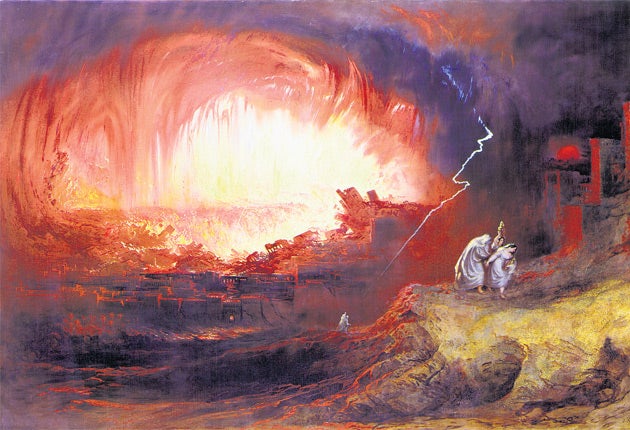Bible says Canaanites were wiped out by Israelites but scientists just found their descendants living in Lebanon
‘You shall not leave alive anything that breathes. But you shall utterly destroy them’

It is a command that led the leading atheist Richard Dawkins to claim that the God of the Old Testament was “a vindictive, bloodthirsty ethnic cleanser … a genocidal … megalomaniacal, sadomasochistic, capriciously malevolent bully”.
For God had ordered the Israelites to slaughter the apparently sinful Canaanites, saying: “You shall not leave alive anything that breathes. But you shall utterly destroy them.” And, according to a passage in the Old Testament's Book of Joshua, they did just that:
“Thus Joshua struck all the land, the hill country and the Negev and the lowland and the slopes and all their kings. He left no survivor, but he utterly destroyed all who breathed, just as the Lord, the God of Israel, had commanded…. He left nothing undone of all that the Lord had commanded Moses.” (Joshua. 10:40, 11:15)
However, a new genetic study has found that the Canaanites actually managed to survive this purge of their traditional homeland, passing on their DNA over the centuries to their numerous descendants in modern-day Lebanon.
Scientists managed to extract enough DNA from the remains of five people – found in the former Canaanite city state of Sidon and dated to about 3,700 years ago – to sequence their entire genome.
They then compared this to 99 modern Lebanese people and discovered they had inherited about 90 per cent of their genetic ancestry from their ancient forebears.
A paper about the study in the American Journal of Human Genetics said that there had been “uncertainties” about the fate of the Canaanites.
“The Bible reports the destruction of the Canaanite cities and the annihilation of its people; if true, the Canaanites could not have directly contributed genetically to present-day populations,” the researchers wrote.
“However, no archaeological evidence has so far been found to support widespread destruction of Canaanite cities between the Bronze and Iron Ages: cities on the Levant coast such as Sidon and Tyre show continuity of occupation until the present day.
“We show that present-day Lebanese derive most of their ancestry from a Canaanite-related population, which therefore implies substantial genetic continuity in the Levant since at least the Bronze Age.”
The degree of genetic closeness between the ancient Canaanites and modern Lebanese people was something of a surprise as the area was repeatedly fought over and conquered by various different groups throughout history, although some of them did leave genetic traces that survive to this day.
One of the researchers, Dr Marc Haber, of The Wellcome Trust Sanger Institute, said: "The present-day Lebanese are likely to be direct descendants of the Canaanites, but they have in addition a small proportion of Eurasian ancestry that may have arrived via conquests by distant populations such as the Assyrians, Persians, or Macedonians.”
He added that it had been a “pleasant surprise” to be able to extract and analyse DNA from human remains that were nearly 4,000 years old, particularly as they were found in a hot environment.
The Canaanites are roundly condemned in the Old Testament – they were the inhabitants of Sodom and Gomorrah, two cities destroyed with fire and brimstone directly by God, according to the Book of Genesis.
While the Bible suggests they were wiped out by the Israelites under Joshua in the land of Canaan, later passages appear to contradict this and state that there were survivors. Some Biblical scholars have argued the passages describing the Canaanites wholesale destruction are hyperbole and inconclusive, and the genetic research would indeed appear to indicate the slaughter was much less extensive than described.
Also known as the Phoenicians, the Canaanites proved to be great seafaring traders and established colonies across the Mediterranean.
They are also credited with inventing the first alphabet, although ironically few written records have survived the passage of time, so accounts describing them largely come from enemies and rivals, such as the Israelites, Egyptians and Greeks.
The researchers said they hoped genetic techniques could help shed more light on the region’s history.
Dr Claude Doumet-Serhal, a co-author of the paper and director of the Sidon excavation site in Lebanon, said: “For the first time we have genetic evidence for substantial continuity in the region, from the Bronze Age Canaanite population through to the present day.
“These results agree with the continuity seen by archaeologists. Collaborations between archaeologists and geneticists greatly enrich both fields of study and can answer questions about ancestry in ways that experts in neither field can answer alone.”
Join our commenting forum
Join thought-provoking conversations, follow other Independent readers and see their replies
Comments
Bookmark popover
Removed from bookmarks